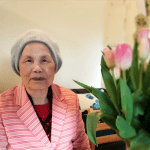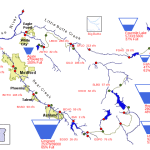Let People Vote
by Addie Greene, Ashland
The American Civil Liberties Union, which has tripled its membership in 2017, from 400,000 to 1.2 million, on Sunday launched a “Let People Vote” campaign in all 50 states and the District of Columbia. Eighteen of us from the Rogue Valley joined a strategy session, one of 600 around the country, to deal with this issue.
The format of the meeting was to watch a one-hour ACLU video and then break up into small groups to discuss solutions. The ACLU’s Dale Ho, broadcasting from Lawrence, Kansas, began by saying, “We have to go on the offensive—not play whack a mole” chasing one voting restriction after another. “Every person’s voice matters in our democracy.”
Ho cited Kansas, where voter turnout decreased when one in seven voters was blocked from registering in 2016 because the state required a birth certificate or passport to register. He also discussed North Carolina’s voter ID law, struck down by a federal appeals court, that targeted “African Americans with almost surgical precision.” Seventy percent of black voters used early voting and were twice as likely as white voters to use same-day registration, Ho said, so this law targeted both. It exempted absentee voters, predominately white, from ID requirements.
All this chasing after fraud, the ACLU’s Bobby Hoffman said, for example rejecting a registration in one jurisdiction that matches a registration in another jurisdiction, produces a 200 to one false positive rate in data on voter fraud. It also makes voter purges more likely, he said.
Because elections in the United States are controlled locally, the ACLU’s Call to Action Plan will be different for every state and Washington, D.C. In South Carolina, for instance, the drive will be to make sure the state buys new voting machines with a paper trail. In Kentucky and Florida it will be restoration of voting rights to convicted felons. In Utah and Indiana, redistricting reform, in North Carolina and West Virginia fighting voter suppression, and in Georgia gerrymandering.
And in Oregon? “The call to action is to convince the Oregon state legislature to lift the prohibition that prevents counties from providing postage-paid ballot return envelopes to Oregon voters each election cycle,” the ACLU says. One participant frankly said this was a waste of time. “We have drop boxes at the libraries,” she said. “Why waste all that money on stamps?”
The ACLU’s rejoinder is that 42% of new, first-time voters don’t have postage stamps in their homes. I pointed out that in the Rogue Valley, most of these people are students, and a simpler solution would be to install drop boxes at SOU and RCC. Another member of our group said rural voters would most likely need to stamp their ballots.
The six of us remaining until the end of the meeting decided to pursue asking the state legislature to allow counties to provide postage-paid ballots. This is a first step and does not address the issue of whether financially strapped counties such as Josephine could afford to spend money in this way.





